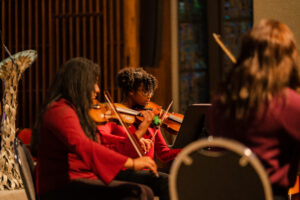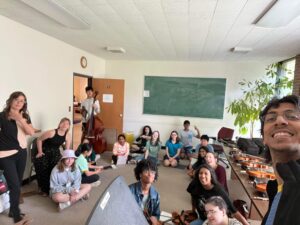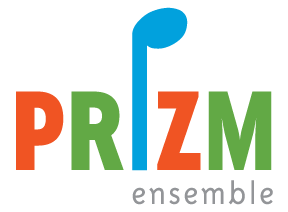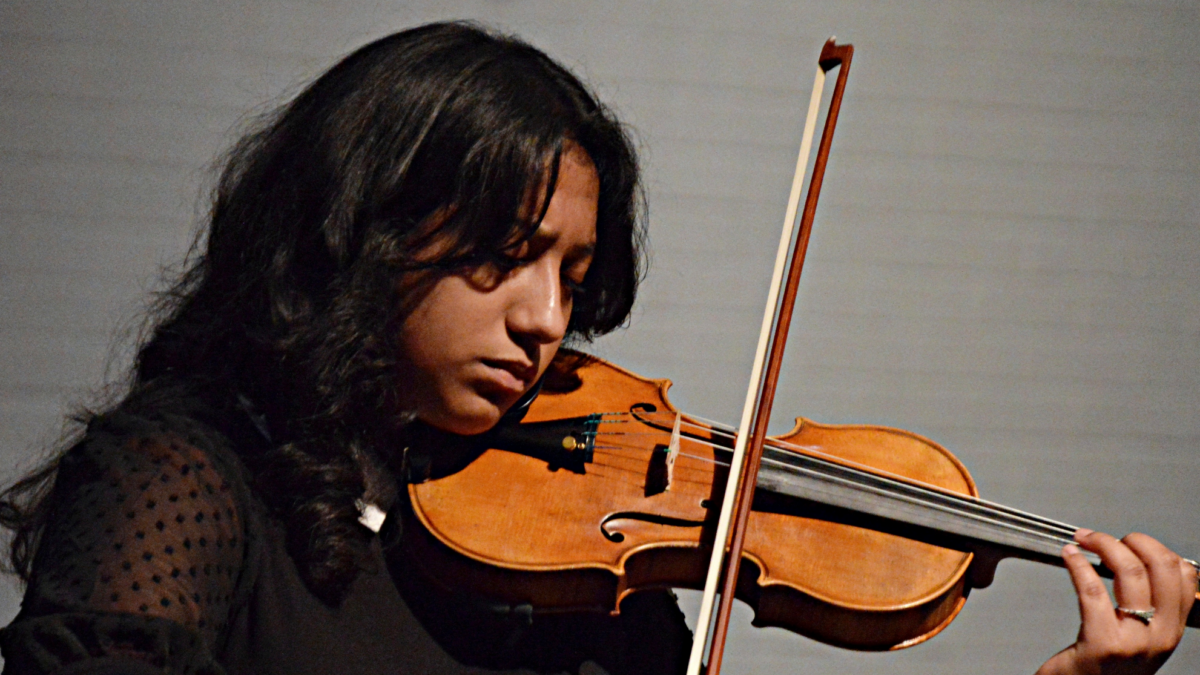PRIZM Spotlight: Elia Garcia

A Special Thank You to Our Volunteers
November 13, 2023
What no one tells you about music educators
February 27, 2024How did your music journey start?
Music has always been a part of my life since I was very young. It always had an influence on my interest to learn to play an instrument. In 5th grade at the age of 10 years old, I was given an opportunity to choose a club for music. There was an orchestra club and a guitar club. “Unfortunately,” the club I was most interested in, which was Guitar club, was full but I was eager to learn music. Impulsively, I joined the orchestra club where they asked what instrument I wanted to play and just as impulsively, I chose to play the violin. Fast forward about 7 years later, I couldn’t be more grateful for that impulsive decision!
What challenges have you faced during your studies?
 Playing music is much different than studying music, although both go hand-in-hand. I struggled so much to define the difference and learn to love each stage of learning music. When I first picked up a violin, I was so excited and ready to learn things! I always found this passion in music that pushed and fueled me to keep pursuing it. As time went by, that passion seemed to turn into frustration and a neglect to practice, leading me down a tunnel where I saw no joy in playing music. I felt stuck and I was set on quitting music until I took the time to realize, the reason this was happening was because my time studying and practicing repertoire wasn’t fruitful.
Playing music is much different than studying music, although both go hand-in-hand. I struggled so much to define the difference and learn to love each stage of learning music. When I first picked up a violin, I was so excited and ready to learn things! I always found this passion in music that pushed and fueled me to keep pursuing it. As time went by, that passion seemed to turn into frustration and a neglect to practice, leading me down a tunnel where I saw no joy in playing music. I felt stuck and I was set on quitting music until I took the time to realize, the reason this was happening was because my time studying and practicing repertoire wasn’t fruitful.
I learned the hard way that in order to enjoy playing, I had to dig in and practice techniques and fundamentals, then add musically. It’s still hard to do meaningful, repetitive practice but it’s worth it to see the results!
How has PRIZM helped or affected your path as a young musician and/or as a young person?
 PRIZM is such a wonderful program! The staff and instructors are some of the best people out there. Being part of PRIZM has helped me meet people with similar and different mindsets that all unite to create beautiful music. This program has opened my eyes to different opportunities and diverse perspectives whether that’s playing music for a living or playing music as a doctor during free time.
PRIZM is such a wonderful program! The staff and instructors are some of the best people out there. Being part of PRIZM has helped me meet people with similar and different mindsets that all unite to create beautiful music. This program has opened my eyes to different opportunities and diverse perspectives whether that’s playing music for a living or playing music as a doctor during free time.
PRIZM has taught me to embrace change and differences; it’s also challenged me to open up and become a better team member. I think PRIZM focuses a lot on chamber music and I love that. Chamber music not only helps you meet new people and see how they operate, but also encourages you to find your flaws and become better for yourself and for the people around you.
When I think of PRIZM, I think of growth as an individual and growth in music. Every person in PRIZM has demonstrated care, dedication, compassion, and love for the arts and its people!
What is your advice to other young people looking to study music?
I would encourage every person who is even slightly interested in studying music, or even just enjoys musical arts, to look to get involved and learn more about programs. There’s so much in the music community that people don’t know about simply because it can be overlooked. Ask questions, spark conversations, find a good mentor! There’s no shame in having doubts and questions about how studying music can look like.
Secondly, if anyone decides to join the music community, don’t give up and keep pushing! As a musician and student, I think the most important advice or word of wisdom is that it’s ok to question and to have highs and lows. Listen to instructors and mentors because they weren’t born knowing what they know and have been in your shoes before too. There’s good and bad days, but each day counts!



